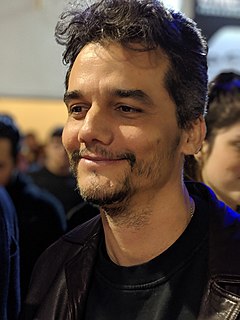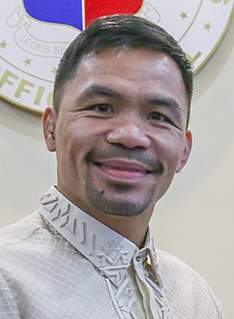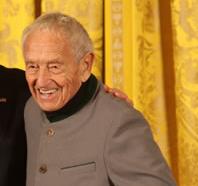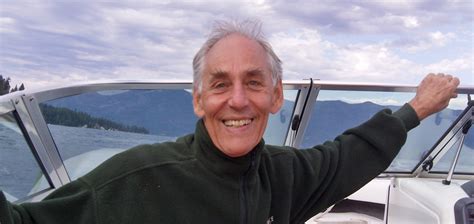A Quote by Wagner Moura
I believe that modern slavery is the most outrageous assault on the rights of an individual. It is something that touches me deeply because I grew up in rural Brazil and could see first-hand how poverty forced people to work in harsh, exploitative conditions.
Related Quotes
People don't understand rural America. Sixteen percent of our population is rural, but 40 percent of our military is rural. I don't believe that's because of a lack of opportunity in rural America. I believe that's because if you grow up in rural America, you know you can't just keep taking from the land. You've got to give something back.
What's most striking is that the world as a whole has made remarkable progress against hunger, poverty and disease. I believe in God, and I see that hundreds of millions of people have escaped from poverty in places like Ethiopia, Bangladesh, Brazil and Britain. That's why, for me, it makes sense that this is God moving in our history.
Sixteen percent of our population is rural, but 40 percent of our military is rural. I don't believe that's because of a lack of opportunity in rural America. I believe that's because if you grow up in rural America, you know you can't just keep taking from the land. You've got to give something back.
People come to have different moral beliefs because they have different non-moral beliefs about relevant facts. People are disposed to believe whatever justifies the practices and institutions that benefit them. But I argue that not all moral differences can be explained away in such a fashion. Some of the most profound disagreements come from differences in priority assigned to values such as relationship and community on the one hand, and individual rights and personal autonomy for the individual, on the other hand.
What makes most people comfortable is some sort of sense of nostalgia. I grew up in a small town, and I could count my friends on one hand, and I still live that way. I think I'll die in a small town. When I can't move my bones around a stage any more, you'll find me living in a place that's spread out and rural and spacious.
Men who cannot believe in the mystery of our Saviour's redemption can believe that spirits from the dead have visited them in a stranger's parlour, because they see a table shake and do not know how it is shaken; because they hear a rapping on a board, and cannot see the instrument that raps it; because they are touched in the dark, and do not know the hand that touches them.
I'm very humbled by the fact that grassroots efforts are rising up all over the country, but particularly in my home state of Ohio. I barely have words. To know that so many people across the state, from the rural areas to the urban areas, see something in my leadership and really believe I am someone for the people means a lot to me. That's how I want people to see me and my public service.
I've always been interested in history, but they never taught Negro history in the public schools...I don't see how a history of the United States can be written honestly without including the Negro. I didn't [paint] just as a historical thing, but because I believe these things tie up with the Negro today. We don't have a physical slavery, but an economic slavery. If these people, who were so much worse off than the people today, could conquer their slavery, we can certainly do the same thing....I am not a politician. I'm an artist, just trying to do my part to bring this thing about.
I had a tough childhood, yes. I was born in rural Bangladesh to parents who had had no education beyond high school. We moved to the UK where I grew up in poverty, in some of the worst conditions in a developed economy, before moving to the projects - heaven - and I went to unremarkable schools before going to university. My father was a bus conductor first and then a waiter, and my mother a seamstress.
Rural poverty happens because people aren't being paid to take adequate care of their places. There's lots of work to do here. And you can't afford to pay anybody to do it! If you depress the price of the products of the place below a certain level, people can't afford to maintain it. And that's the rural dilemma.
It is possible to see slavery and serfdom merely as extreme early forms of autocratic management, in which employees had no voice whatsoever in the work process and were viewed not as human beings but as alienated forms of individual wealth. Slavery, in this sense, did not die; it continues in modern dress in contemporary organizations wherever managers exercise autocratic power, unequal status, or arbitrary privileges, no matter how scientific the terminology or postmodern the image
Slavery, you know, is nothing else than the unwilling labor of many. Therefore to get rid of slavery it is necessary that people should not wish to profit by the forced labor of others and should consider it a sin and a shame. But they go and abolish the external form of slavery and arrange so that one can no longer buy and sell slaves, and they imagine and assure themselves that slavery no longer exists, and do not see or wish to see that it does, because people still want and consider it good and right to exploit the labor of others.
As for slavery, there is no need for me to speak of its bad aspects. The only thing requiring explanation is the good side of slavery. I do not mean indirect slavery, the slavery of proletariat; I mean direct slavery, the slavery of the Blacks in Surinam, in Brazil, in the southern regions of North America. Direct slavery is as much the pivot upon which our present-day industrialism turns as are machinery, credit, etc. … Slavery is therefore an economic category of paramount importance.



































